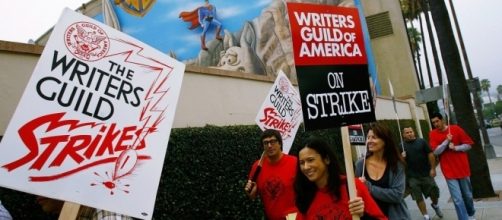In the span of November 2007 to February 2008, TV and radio writers that make up the Writers Guild of America went on strike against the Alliance of Motion Picture and Television Producers. They had hoped to gain increased funding for the writers’ sake out of the larger studio profits. It was resolved three months later with some short-term deals cut, but with a new percentage payment for the writers. Now, barely a decade later, tensions are rising anew between writers and producers in the wake of a period of uncertainty in Hollywood are leading into the possibility of a new writers’ strike after a majority of Wga members voted positively for authorization.
Not landing on their feet
As the current writer-producer contract between the WGA and AMPTP comes close to its termination on May 1, it has become increasingly clear that the production side hasn’t quite made as much contingency preparations as they did in the last strike. Thus if the unions decide to effect a work stoppage as soon as May 2, studios and companies have no scenarios to call upon.
Many production execs however now have the possible strike on their minds, with it becoming a dominant topic on their latest contingency meetings. After an eight-day halt to talks, negotiations between WGA and AMPTP began anew April 25 up until the following day. A source close to the matter described the situation to forestall a strike as “going down to the wire”.
In a recent poll by members of the Writers Guild, 67.5% of their eligible voters cast over 6,000 ballots with a 96% positive vote to authorize a strike. Should such a move push through, the WGA’s 12,000 strong members will stop working on stories for films, or TV series episodes. As a result, some very popular programs such as “Saturday Night Live” with their regular bashing of President Donald Trump could be adversely affected by writers walking out.
Arguments and counter-arguments
As both the WGA and AMPTP continue to try and hash out a new agreement before May 1 amid an enforced media blackout, the Writers Guild has made the case that they really wish they won’t have to strike. Nevertheless, the near-unanimous vote to authorize such an action serves as a show of unity to the producers in order to negotiate a better deal.
The AMPTP also has their own rebuttal against the writers camp should they actually go ahead with a strike, citing how much money they will lose from not working. The 2007-08 strike supposedly cost WGA members some $287 million in compensation.
Among the TV series that are taking steps to buckle down for a Writers Guild strike is “The Walking Dead” on AMC, which is delaying the airing of its 8th season on account of the uncertainty with the WGA and AMPTP.

